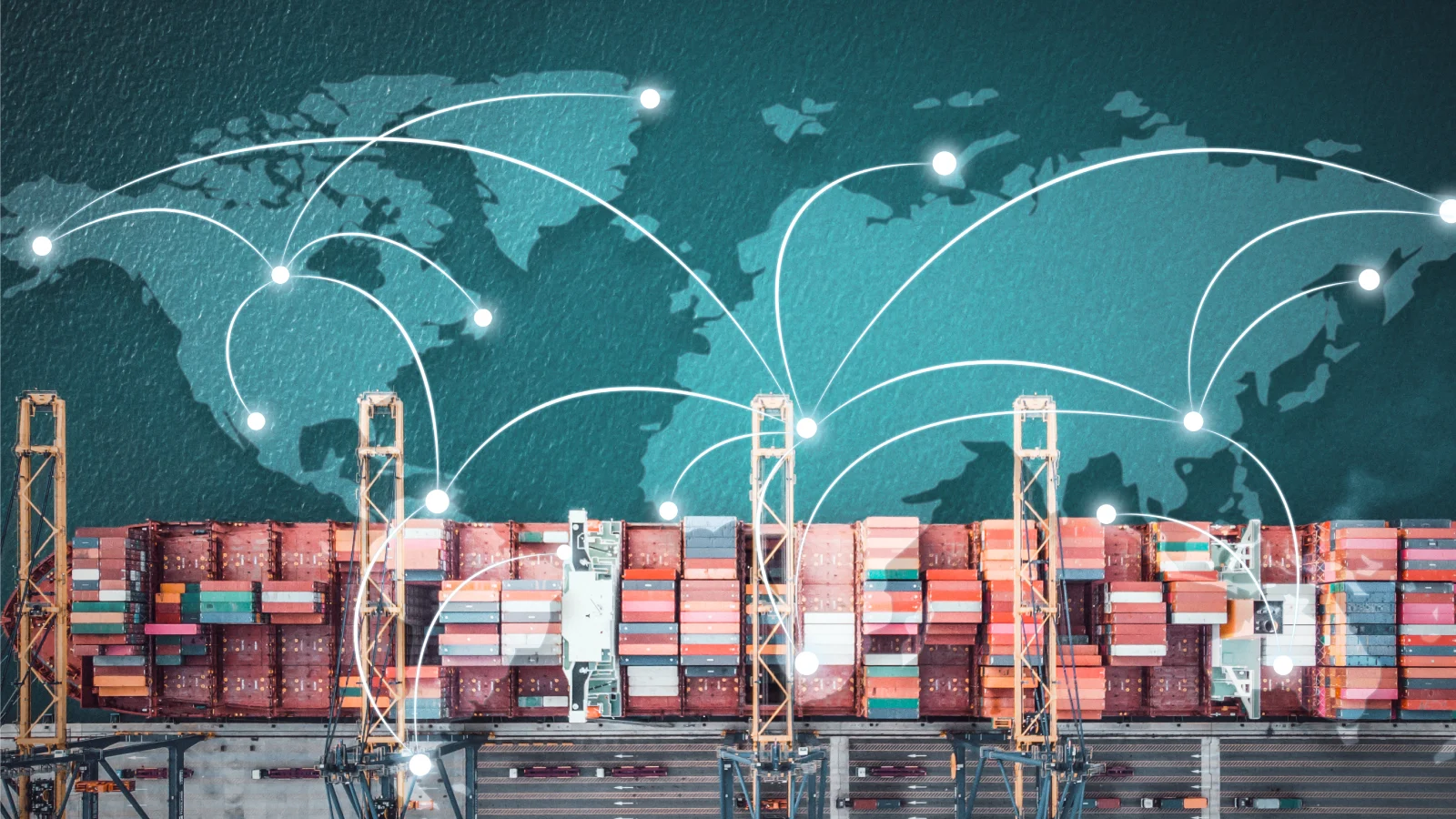
AI in Logistics and Supply Chain Management
By Udit Agarwal

In today’s fast-paced world, the logistics and supply chain industry faces unprecedented challenges in meeting customer demands while maintaining efficiency and cost-effectiveness. With the rise of e-commerce, globalization, and the ever-increasing complexity of supply chains, organizations are turning to innovative technologies to streamline operations and gain a competitive edge. Among these technologies, Artificial Intelligence (AI) is revolutionizing logistics and supply chain management. In this article, we’ll explore the transformative potential of AI in optimizing logistics and supply chain processes, enhancing visibility and decision-making, and driving innovation in the industry.
Enhancing Predictive Analytics:
AI-powered predictive analytics are reshaping how logistics and supply chain operations are managed. By analyzing vast historical data, AI algorithms can forecast demand patterns, anticipate market trends, and optimize inventory levels. This enables organizations to minimize stockouts, reduce excess inventory, and improve overall supply chain efficiency. Predictive analytics also empower organizations to proactively identify and mitigate potential disruptions, such as supplier delays or transportation bottlenecks, before they impact operations.
Optimizing Route Planning and Delivery:
AI algorithms are revolutionizing logistics route planning and delivery optimization. By leveraging real-time data on traffic patterns, weather conditions, and delivery constraints, AI-powered route optimization systems can dynamically adjust delivery routes to minimize travel time, fuel consumption, and carbon emissions. This improves delivery efficiency and on-time performance and reduces costs and environmental impact. Additionally, AI-enabled delivery tracking systems provide real-time visibility into shipment status, allowing organizations to communicate with customers and manage expectations proactively.
Improving Warehouse Operations:
AI technologies transform warehouse operations by automating manual tasks, optimizing storage space, and enhancing inventory management. AI-powered robotics and automation systems enable autonomous picking, packing, and sorting of goods, increasing efficiency and throughput while reducing labor costs and human error. AI-driven warehouse management systems (WMS) utilize machine learning algorithms to optimize inventory placement, predict demand fluctuations, and minimize stockouts. This ensures that the right products are available at the right time and location to meet customer demand.
Enhancing Supply Chain Visibility:
AI-driven supply chain visibility solutions provide organizations with real-time insights into the entire supply chain, from raw material sourcing to final product delivery. By integrating data from disparate sources, such as suppliers, manufacturers, carriers, and distributors, AI-powered visibility platforms create a single source of truth for supply chain data. This not only enables organizations to track shipments in transit, monitor inventory levels, and identify potential bottlenecks or disruptions across the supply chain but also provides a sense of reassurance by allowing them to make more informed decisions and mitigate risks, thereby improving overall supply chain resilience.
Enabling Demand Forecasting and Inventory Optimization:
AI-driven demand forecasting and inventory optimization solutions leverage advanced analytics and machine learning algorithms to predict future demand patterns and optimize inventory levels accordingly. AI algorithms can generate accurate demand forecasts at both macro and micro levels by analyzing historical sales data, market trends, and external factors such as economic indicators and weather patterns. This enables organizations to optimize inventory levels, reduce carrying costs, and minimize stockouts while maximizing customer satisfaction and profitability.
Facilitating Supplier Relationship Management:
AI technologies are transforming supplier relationship management (SRM) by automating supplier selection, performance monitoring, and risk assessment processes. AI-powered SRM platforms utilize natural language processing (NLP) and sentiment analysis to analyze supplier communications, contracts, and performance data, enabling organizations to identify opportunities for cost savings, process improvements, and strategic partnerships. AI algorithms can also assess supplier risk factors, such as financial stability, geopolitical instability, and supply chain disruptions, allowing organizations to manage supplier risks and ensure business continuity proactively.
Also Read: How is Technology Changing the Future of Consumer Lending?
Driving Innovation and Competitive Advantage:
AI is driving innovation and competitive advantage in the logistics and supply chain industry by enabling organizations to unlock new opportunities, optimize processes, and differentiate themselves in the market. By harnessing the power of AI-powered technologies, organizations can gain deeper insights into customer preferences, market trends, and competitor behaviors, enabling them to develop innovative products, services, and business models that meet evolving customer needs and drive growth.
Conclusion:
As the logistics and supply chain industry continues to evolve in response to changing customer expectations, market dynamics, and technological advancements, organizations must embrace AI as a transformative force for innovation and growth. By harnessing the power of AI-driven predictive analytics, route optimization, warehouse automation, supply chain visibility, demand forecasting, and supplier relationship management, organizations can optimize logistics and supply chain operations, enhance decision-making, and drive competitive advantage in the digital age. As AI technologies continue to mature and evolve, the future of logistics promises to be smarter, more efficient, and more resilient than ever before.